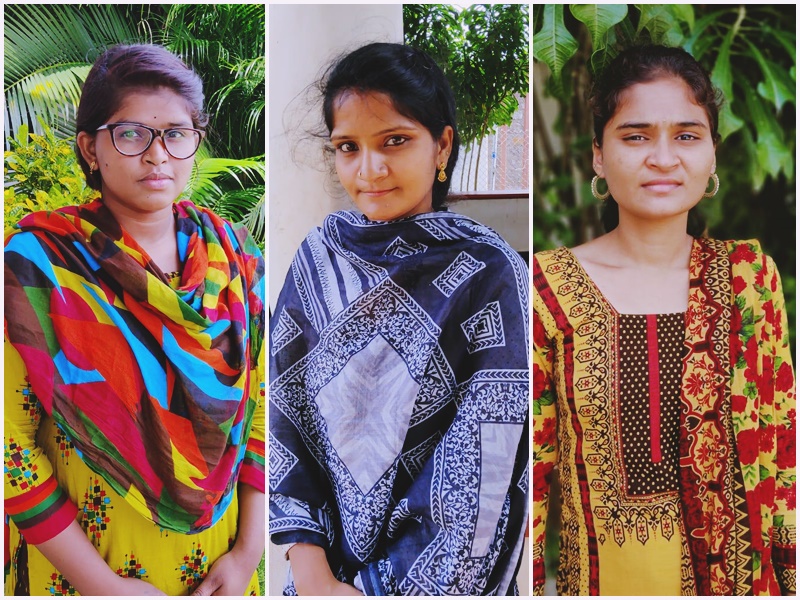Anti Human Trafficking Day: Hear what the survivor warriors from Telangana have to say
By Priyali Dhingra
Hyderabad: Reshma was 13 years old when she first fell in love.
An only child of her deceased parents, she was living with her relatives who raised her. It was a loveless childhood, with no one to listen to her problems. She fell deep into the pit of loneliness and soon became a wallflower.
Reshma then found someone to hold on to. When she was studying in the 9th standard at a government school in Telangana, she met a young man. The love was comforting enough for her to run away and get married to him. "We shared a wonderful life for the first three months, after which he decided to sell me to a prostitution racket for 30,000 rupees," she says.
After a long period of forced sexual labour and rehabilitation, today Reshma chairs the Aparajita foundation. In the years that it has been active, Reshma and several other girls have rescued hundreds from prostitution rackets.
"If we want to stop this crime, we can only do it by erasing the root cause," she says. Reshma feels that schools should take the lead in educating young children about sex trafficking. She adds, "Teachers and councillors should listen to the problems children have, rather than focusing merely on marks. The emotional burden causes children to fall into a plethora of traps."
Another survivor of the crime in Telangana, Anutulasi, feels that it is only through community vigilance that we can ensure a reduction in trafficking.
Anutulasi was 16 years old when she was sold to a prostitution racket in Delhi. "There was a maid in my school who spoke to me very frequently. I loved to dance, and she was the only one who shared my excitement for it. Soon after we built a loving relationship, she took me to Delhi and sold me there," she says.
Anutulasi feels that it is only the people we know and love, who have the authority to send us off into this business. For the same reason, she insists, there should be a watchful eye placed by village community heads- Anganwadi teachers, ASHA workers, and panchayats.
�
Bhawani, however, insists that fear should be instilled in the people who commit the crime. She was 13 when her mother sold her to a prostitution racket. Ever since then, a part of her has always feared how society will react to her. "I was rescued years ago, but I carry a certain sense of shame even today. Those who did this to me still roam free," she says.
Reshma further adds that the discrimination in raising a girl and boy create a condition for this crime to be justified. "When a young boy is told that he is a mard (man) and can do anything, he even develops the authority to traffic women," she says.
All women feel that shelter homes are of absolute necessity. Reshma was put into a shelter home right after she was rescued from a brothel.
"Recalling the torture I underwent when I was at the brothel still gives me goosebumps. They forced us to drink, stubbed cigarettes on our bodies, and made us work round the clock. All that led me to accept that I was only capable of prostitution, and nothing else. Only after weeks of rehabilitation at a shelter home was I able to get rid of this thought," she says.
Bhawani feels that had she not been put in a shelter home and given the required counselling, she would have ended up trafficking women herself.
Anutulasi adds, "A shelter home is not where the rescued girls are provided three meals a day. For proper rehabilitation, a shelter home should provide doctors, councillors, and a whole lot of care."
In regards to COVID-19, the women felt that due to a lack of ration cards, they did not receive any aid from the government. While demanding the same, they also said that a special isolation facility should be set up for girls who are rescued in this period. "We need to ensure that those already inside the shelter homes do not get infected. There should be immense focus laid on the health of rescued girls or those in rehabilitation," Reshma adds.
The above mentioned conversation was part of a seminar organised by Prajwala on the occasion of World Day Against Trafficking In Persons.